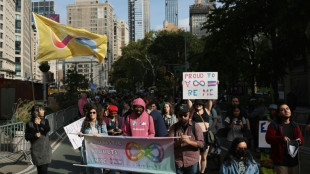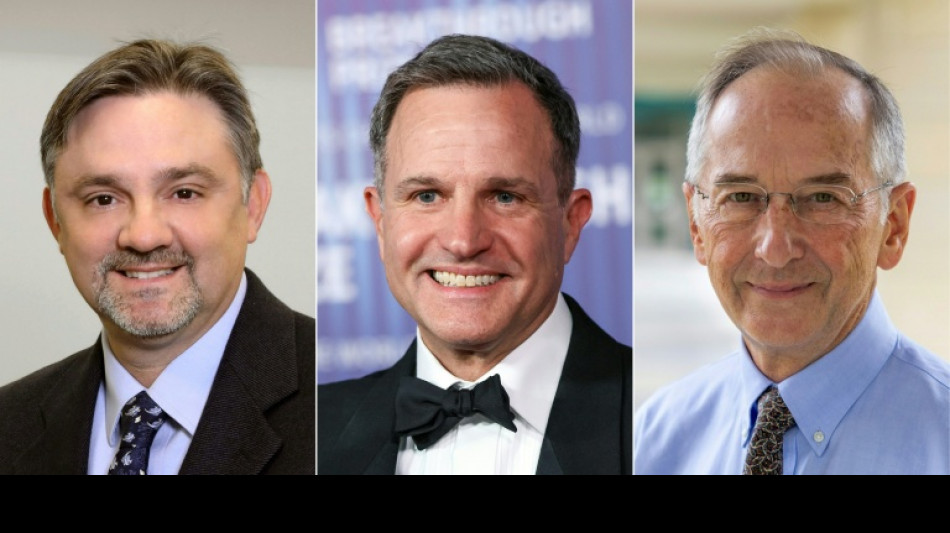
-
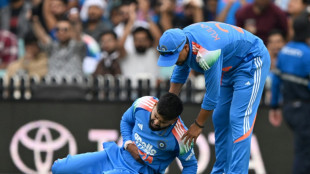 India's Iyer says 'getting better by the day' after lacerated spleen
India's Iyer says 'getting better by the day' after lacerated spleen
-
Yesavage fairytale carries Blue Jays to World Series brink

-
 Bank of Japan keeps interest rates unchanged
Bank of Japan keeps interest rates unchanged
-
Impoverished Filipinos forge a life among the tombstones

-
 Jokic posts fourth straight triple-double as Nuggets rout Pelicans
Jokic posts fourth straight triple-double as Nuggets rout Pelicans
-
UN calls for end to Sudan siege after mass hospital killings

-
 Teenage Australian cricketer dies after being hit by ball
Teenage Australian cricketer dies after being hit by ball
-
As Russia advances on Kupiansk, Ukrainians fear second occupation

-
 Trade truce in balance as Trump meets 'tough negotiator' Xi
Trade truce in balance as Trump meets 'tough negotiator' Xi
-
China to send youngest astronaut, mice on space mission this week

-
 Yesavage gem carries Blue Jays to brink of World Series as Dodgers downed
Yesavage gem carries Blue Jays to brink of World Series as Dodgers downed
-
With inflation under control, ECB to hold rates steady again

-
 Asia stocks muted with all eyes on Trump-Xi meeting
Asia stocks muted with all eyes on Trump-Xi meeting
-
Personal tipping points: Four people share their climate journeys

-
 Moto3 rider Dettwiler 'no longer critical' after crash: family
Moto3 rider Dettwiler 'no longer critical' after crash: family
-
US economy in the dark as government shutdown cuts off crucial data

-
 Trump orders nuclear testing resumption ahead of Xi talks
Trump orders nuclear testing resumption ahead of Xi talks
-
'Utter madness': NZ farmers agree dairy sale to French group

-
 Samsung posts 32% profit rise on-year in third quarter
Samsung posts 32% profit rise on-year in third quarter
-
30 years after cliffhanger vote, Quebec separatists voice hope for independence

-
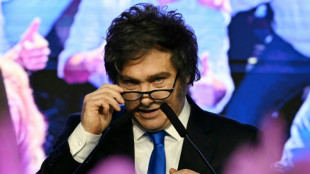 Taxes, labor laws, pensions: what Milei wants to do next
Taxes, labor laws, pensions: what Milei wants to do next
-
South Sudan's blind football team dreams of Paralympic glory
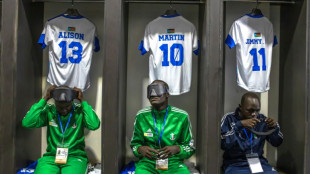
-
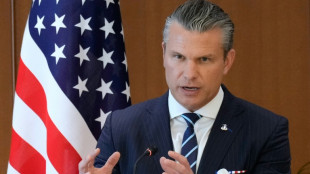 US says 4 killed in new strike on alleged Pacific drug boat
US says 4 killed in new strike on alleged Pacific drug boat
-
What we do and don't know about Rio's deadly police raid
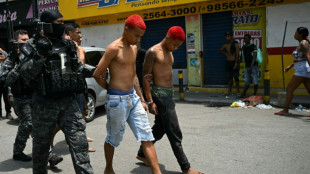
-
 'They slit my son's throat' says mother of teen killed in Rio police raid
'They slit my son's throat' says mother of teen killed in Rio police raid
-
Arteta hails 'special' Dowman after 15-year-old makes historic Arsenal start
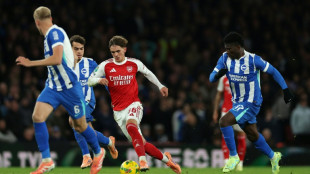
-
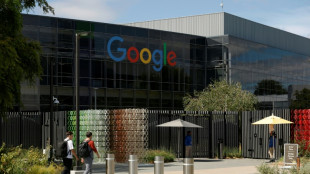 Google parent Alphabet posts first $100 bn quarter as AI fuels growth
Google parent Alphabet posts first $100 bn quarter as AI fuels growth
-
Underwater 'human habitat' aims to allow researchers to make weeklong dives

-
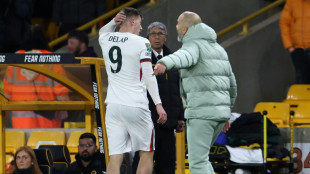 Maresca slams Delap for 'stupid' red card in Chelsea win at Wolves
Maresca slams Delap for 'stupid' red card in Chelsea win at Wolves
-
'Non-interventionist' Trump flexes muscles in Latin America

-
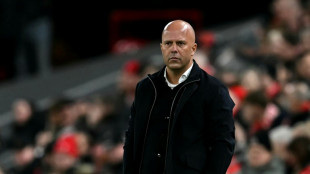 Slot defends League Cup selection despite not meeting 'Liverpool standards'
Slot defends League Cup selection despite not meeting 'Liverpool standards'
-
'Poor' PSG retain Ligue 1 lead despite stalemate and Doue injury
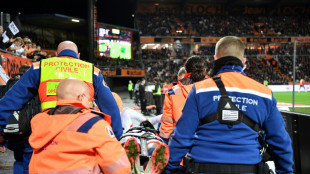
-
 Liverpool crisis mounts after League Cup exit against Palace
Liverpool crisis mounts after League Cup exit against Palace
-
Kane scores twice as Bayern set European wins record
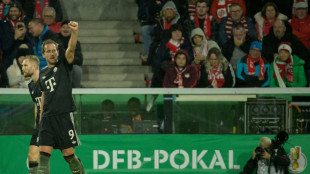
-
 Radio Free Asia suspends operations after Trump cuts and shutdown
Radio Free Asia suspends operations after Trump cuts and shutdown
-
Meta shares sink as $16 bn US tax charge tanks profit
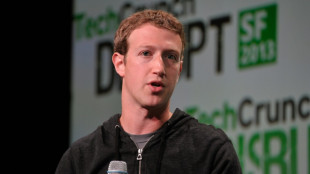
-
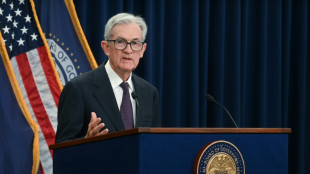 Dollar rises after Fed chair says December rate cut not a given
Dollar rises after Fed chair says December rate cut not a given
-
Google parent Alphabet posts first $100 bn quarter as AI drives growth
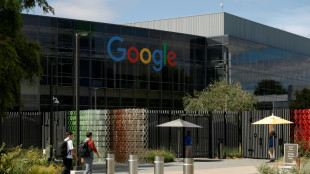
-
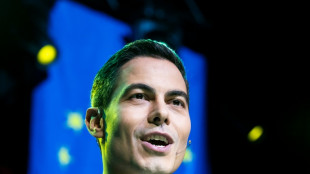 Rob Jetten: ex-athlete setting the pace in Dutch politics
Rob Jetten: ex-athlete setting the pace in Dutch politics
-
Juve bounce back after Tudor sacking as Roma keep pace with leaders Napoli
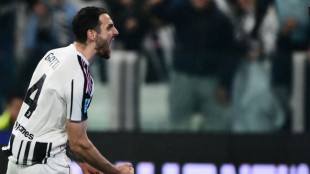
-
 Favorite Sovereignty scratched from Breeders' Cup Classic after fever
Favorite Sovereignty scratched from Breeders' Cup Classic after fever
-
Doue injured as PSG held at Lorient in Ligue 1
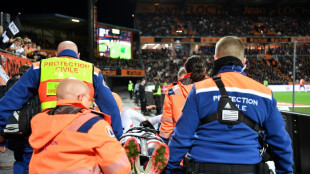
-
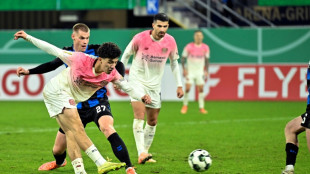 Leverkusen win late in German Cup, Stuttgart progress
Leverkusen win late in German Cup, Stuttgart progress
-
Jihadist fuel blockade makes life a struggle in Mali's capital
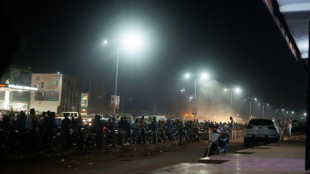
-
 Uber plans San Francisco robotaxis in Waymo challenge
Uber plans San Francisco robotaxis in Waymo challenge
-
Paramilitary chief vows united Sudan as his forces are accused of mass killings

-
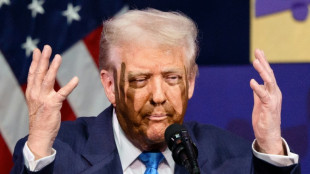 Trump, Xi to meet seeking truce in damaging trade war
Trump, Xi to meet seeking truce in damaging trade war
-
Divided US Fed backs second quarter-point rate cut of 2025
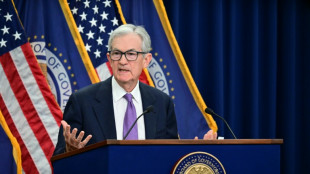
-
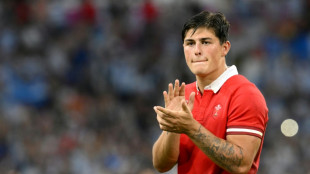 'Amazing' feeling for Rees-Zammit on Wales return after NFL adventure
'Amazing' feeling for Rees-Zammit on Wales return after NFL adventure
-
'Cruel' police raids help, not hinder, Rio's criminal gangs: expert


Scientists behind breakthrough cystic fibrosis treatment awarded top US prize
Cystic fibrosis was once a dire, likely deadly diagnosis, destroying a patient's ability to breathe and digest food -- but a revolutionary new treatment offers reason for hope.
And on Thursday the three scientists who developed the clinical advance were awarded America's most prestigious scientific award, taking home the Lasker prize.
The top honor is frequently cited as a pre-cursor for a potential Nobel, and this year it recognized the pulmonologist Michael Welsh along with researchers Jesus Gonzalez and Paul Negulescu from the US laboratory Vertex.
Their research has shed light on the causes of the disease and given rise to a new class of innovative drugs, including the flagship treatment Kaftrio -- known as Trikafta in the United States -- which are capable of stabilizing the otherwise debilitating condition.
"It's unbelievable. It's better than I ever hoped," Welsh told AFP. "You see these kids and they look healthy and they're not coughing. They're running around and playing."
"I almost can't believe it. Then they go, and they're getting married and they're having kids, and they're getting on with their lives."
That reality stands in sharp contrast to Welsh's memories from the early days of his career, when a cystic fibrosis diagnosis was a likely death sentence in childhood or adolescence.
The new award-winning treatment has been hailed as "revolutionary" by patient advocacy organizations.
It works by addressing the underlying causes of the inherited disease -- which wreaks havoc on the lungs and digestive system -- rather than its symptoms.
- 'Not totally broken' -
Some 100,000 people worldwide are estimated to suffer from cystic fibrosis, in which sticky mucus builds up in the lungs, digestive tract and other parts of the body.
After the 1989 discovery of the CFTR gene -- whose mutation was identified as the cause of the disease -- Welsh began dissecting the problem with fellow researchers.
"We thought, if we understand how CFTR works, we have a chance of fixing it," he said.
Gaining a better understanding of how the protein that the gene codes for led the pulmonologist down a path seeking how genetic mutations impaired its function.
Welsh identified two major anomalies caused by the most common mutation: a trapping of sorts of the protein within the cell, and its reduced performance.
The medical breakthrough resulted from experiments, notably some that showed how lowering temperature could help release the trapped protein.
"That meant it was not totally broken," Welsh remembered enthusiastically.
Armed with these discoveries, the American Cystic Fibrosis Foundation then approached researchers Gonzalez and Negulescu, who began studying the possibility of chemically reversing the identified malfunctions.
- 'Panning for gold' -
The notion of gene therapy -- which would aim to directly reverse the gene mutations -- had seemed on paper to be the simplest route.
But when it didn't work as hoped, patient organizations began to explore other options.
Gonzalez developed an innovative research technique using dyes that allowed for testing thousands of chemical compounds in record times.
"Without the screening, we would never have found these molecules," he said.
It was process akin to "panning for gold," recalled Negulescu.
But ultimately their dogged work paid off; they identified a handful of molecules that led to the birth of a new class of treatments.
Those molecules proved capable of restoring mobility to the stuck protein, and improving its function.
Kaftrio/Trikafta -- approved stateside in 2019 and classified by the World Health Organization as an essential treatment in 2025 -- is among them.
But their significant cost poses an obstacle for some patients, especially as the treatment is lifelong, and the therapy is ineffective in a small minority of patients including those with different mutations.
"The work is not done," said Negulescu.
C.Kreuzer--VB




